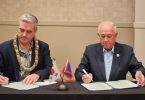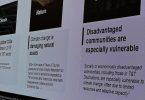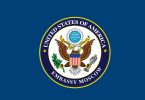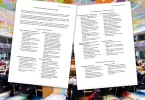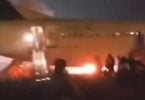In 2013, AvCon Worldwide Limited, based in London in the UK, represented Saudi Arabia’s Prince Faisal al-Saud, and went to Thai Airways International (THAI) to buy A340-500s from them. From late March until October 2013, as negotiations were held, over US$1 million was wasted by AvCon for engineers hired by the company, along with other costs such as hotel stays, transportation, meals, and other travel costs. In addition, AvCon paid a deposit of US$2.5 million on a future transaction that never came to fruition.
What happened next became big news in Thailand’s media.
The then acting President of Thai Airways, Sorajak Kasemsuvan, told the media that the THAI Board had rejected AvCon’s offer in August 2013. However, according to AvCon Worldwide Limited’s Managing Director, James Stewart Kim, no Board decision was made on the offer until a couple of months later in October 2013. THAI was losing so much money that this executive did not want to have to write off more funds and create even greater losses in THAI’s books.
Without a Board decision made, the Thai acting President, who retired the following year in 2014, asked AvCon to take its deposit back despite the condition in their agreement which stated “no refund of deposit unless board rejects it.” AvCon demanded a Board resolution confirming a Board decision had been made or an official letter of explanation issued by THAI.
According to a report in the Thailand media, AvCon proposed to buy 4 Airbus A340-500s from THAI, beginning with a proposal to buy one aircraft for US$23 million, far lower than its $66.9 million book value. AvCon stated that THAI agreed to sell them the plane and accepted a deposit in the amount of $2.5 million.
THAI claims the offer was rejected by its Board, but AvCon said the Board had yet to make a decision. Thai Airways Board Chairman Ampon Kittiampon said the Board must give a reasonable explanation to shareholders as to why THAI could admit such a great loss, and he suggested management should either continue negotiations or find other alternatives for the airline’s decommissioned planes.
AvCon demanded an apology from Thai Airways through the media for its wrongful statements, but this was refused. AvCon’s Managing Director said this left his company no alternative but to take the airline to court to ask for compensation of all the expenses caused by the airline on an agreement that never was fulfilled.
Even more important, in the beginning of the negotiations, AvCon had its engineers look at the aircraft using video borescopes it was to make offers on. Two of the aircraft’s engines required an overhaul, and C4 checks had not been done although the airline’s specifications not only did not reveal that information, but went even further indicating the C4 checks had been done.
After finding these maintenance discrepancies, AvCon warned Thai Airways as well as the Thai government of this serious issue. Such an oversight could cause the Thai Department of Civil Aviation to downgrade the airline’s CAT 2 status, already at a dismal ranking. Adding to that issue is the fact that the Thai Department of Civil Aviation does not have enough inspectors.
The current President of Thai Airways, Charamporn Jotikasthira, was appointed just a few months ago, and AvCon has contacted him to resolve these issues, but there has been no response. AvCon’s Managing Director was to release the maintenance discrepancy data on April 27, 2015 to the public, but because he had heard the Thai Airways President had scheduled a meeting to address this issue on that same day, he postponed release of the information for 2 days until April 29. THAI’s decision was to do nothing, evidently believing AvCon would also not pursue the issue any further.
AvCon’s Managing Director has friends who work for Thai Airways at the senior executive level, and he was concerned about people in the aviation and tourism industry having their livelihoods impacted should this maintenance discrepancy data be released. On the other hand, many people told AvCon’s Managing Director that he should look at this as an opportunity for Thai Airways and the Thai Department of Civil Aviation to overhaul themselves once these issues come to light.
THAI is a state-run enterprise, and senior management members are appointed, many with 2 to 3 years to go before retirement. They have a sense of security and a kind of mentality that what they choose not to deal with, will be faced by their successors. Also, THAI’s Board members are politically-appointed people who do not have experience in running an airline, and they often go against management decisions and recommendations.
It was a struggle for AvCon’s Managing Director to make his decision, but in the end, in the interest of the traveling public’s safety, and the future of THAI and the Thai Department of Civil Aviation, he opted to reveal the maintenance data. He called it a bitter medicine that is necessary to cure the illness.
AvCon’s Managing Director wants it made clear that this action to release the maintenance data was not to take Thai Airways to court and win a battle nor was it to win any contract with the Thai Department of Civil Aviation. AvCon’s hope is that Thai Airways will be forced to improve its standards after already failing the International Civil Aviation Organization’s (ICAO) Universal Safety Oversight Audit Program (USAOP) which works to promote global aviation safety.







